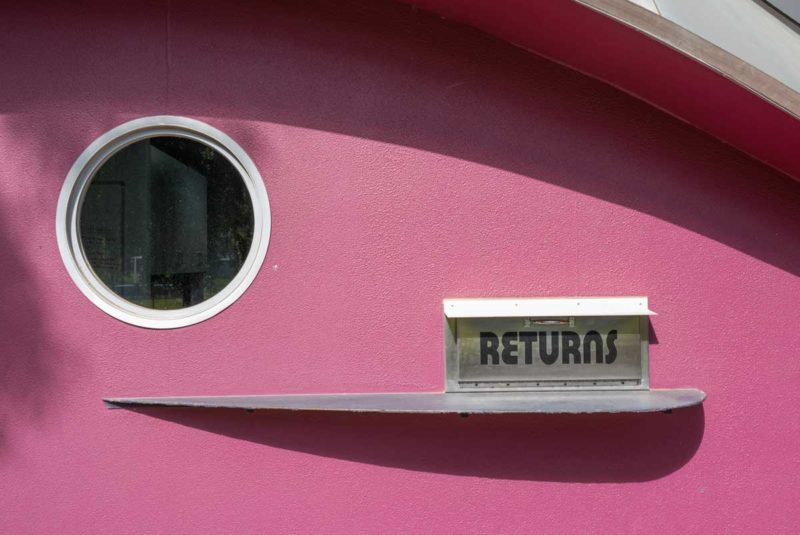Credit cards often offer benefits over using debit cards, like fraud protection, points or cash back, and in some cases return protection. We break down the details of credit card return protection, showing how to use this handy benefit to get your money back when the retailer won’t accept your return.
Retailers have different and complex policies on how long you have for returns and what criteria are required for refunds, so when you run into an obstinate merchant you may want to leverage your credit card’s return protection if possible.
What Is Credit Card Return Protection?
Some credit card companies offer this perk, which provides protection when buying products that may not be returnable for a refund otherwise. It’s not as common as it used to be, though.
In most cases, you need to make the purchase entirely with your card. Return protection will usually cover purchases made with rewards, like points or cash back, but you may want to check your card to make sure.
How do you file a claim for return protection?
Imagine that Jason bought a pair of headphones online for $301.65.
After using them once in 45 days, he decides he doesn’t really need them. However, the store’s return policy only allows for returns up to 30 days from the date of purchase.
Since Jason used his Chase Sapphire Reserve® to buy the headphones, he was able to call Chase and use return protection to get his money back. He called the benefits administrator to get the return started, and they gave him details on where to mail the headphones to process the reimbursement.
After submitting the headphones, receipt, credit card statement, and a copy of the store’s return policy, Jason received a full refund.
The process may vary by the card company, but in general, you’ll need:
- Your receipt for the purchased item.
- A credit card statement showing the purchase.
- A copy of the retailer’s return policy.
- A written confirmation that the store won’t accept the return.
The steps to take usually include:
- Contact the retailer or merchant to confirm it won’t accept the return
- Collect the necessary paperwork
- Call or go online to file the claim
- Submit the necessary paperwork
- Return the item to the credit card company or benefits administrator (if necessary)
- Follow up (if necessary)
Detailed instructions and return details are provided below for several major credit card companies and issuers.
What Are the Best Credit Cards With Return Protection?
Every American Express card currently provides the same return protection perk. This encompasses a solid selection of dependable credit cards. You’ll generally have to look harder or pay a hefty annual fee if you’d like a non-Amex credit card with return protection.
If you consider return protection a must-have benefit, check the guide to benefits (if it’s available online) or contact the issuer before you apply for a new credit card. Several issuers that once offered the benefit have since removed it, so it’s best to confirm.
Enrollment required for select benefits, terms, and limitations apply.
Return Protection by Credit Card Company
Here’s an overview of the various return protection services offered by the major credit card companies, but it would be wise to check the details for your specific card.
American Express
- Duration: It’s valid for 90 days from the date of purchase.
- Eligible cards: Any basic or additional card member on an eligible American Express card. This includes Amex business credit cards.
- Details: If the merchant won’t take the item back, Amex may refund the full purchase price (excluding shipping and handling).
- Amount covered: Up to $300 per item, with a maximum of $1,000 per card in a calendar year.
- Eligible purchases: Purchases must be made in the U.S. or a U.S. territory. Additionally, some items aren’t covered such as living plants, computer software, gift cards, seasonal items, limited edition items, items permanently affixed to your house (like garage door openers), watches, precious coins, perishable items or items with limited lifespans, travelers checks, going-out-of-business sale items, and healthcare items or medical equipment.
- Terms and conditions: All details of this return protection policy are available on the American Express website.
How to use American Express’ return protection:
- Once you’ve verified that the merchant will not accept the eligible item, call 1-800-297-8019 or visit AmericanExpress.com/onlineclaim within 90 days of the purchase date to notify Amex of your request.
- Within 30 days of your initial request, Amex will ask you to provide a copy of the original store receipt, the American Express card record of charge, and any other items deemed reasonable to process your request.
- After your request is reviewed, you may need to send the item to Amex within 30 days (shipping costs will be reimbursed).
- You can check the status of your request by calling the Return Protection toll free number at 1-800-297-8019.
Capital One
Capital One doesn’t offer return protection as a benefit on its cards.
Chase
- Duration: It’s valid for 90 days from the date of purchase.
- Eligible cards: Chase doesn’t offer return protection across the board, but it is available to Chase Sapphire Reserve® and United Club℠ Infinite Card cardholders.
- Details: Provides reimbursement if you are dissatisfied with a personal item that you purchased and the merchant will not accept the return. Also provides coverage in excess of any applicable store guarantees.
- Amount covered: Up to $500 per eligible item, with a maximum of $1,000 per year.
- Eligible purchases: Purchases must be made in the U.S. or a U.S. territory. Additionally, some items aren’t covered such as living plants, computer software, jewelry, and tickets.
- Terms and conditions: All details of the Chase Sapphire Reserve’s return protection policy are available on page 33 of its card guide; for the MileagePlus Club, check your guide to benefits or call the number on the back of your card.
How to use Chase’s return protection:
- Call 1-800-874-7702 for information or to file a protection claim. You can also file a claim online at cardbenefitservices.com.
- The benefit administrator will send you a claim form. You must submit a completed claim form with supporting documentation within 30 days from the date you notified the benefit administrator. If the claim is filed within 30 days of purchase, you may need to submit proof of the store’s return policy.
- The item must be returned to the benefit administrator in like-new/good working condition.
- You can check the status of your request by calling the return protection toll free number at 1-800-297-8019.
Citi
Citi no longer offers return protection. It was removed from most Citi cards on September 22, 2019, as were several other shopping and travel benefits.
Discover
Discover no longer offers return protection, which they called return guarantee. They previously did, but the offering expired February 28, 2018.
Mastercard
- Duration: It’s valid for 60 days from the date of purchase.
- Eligible cards: Not all Mastercards include the satisfaction guarantee; check your card’s guide to benefits to learn if it’s included.
- Details: Mastercard may refund the full original purchase price if it’s not covered by insurance, warranty, or coverage (excluding additional costs like taxes, storage, shipping, and handling).
- Amount covered: Up to $250 per item, with a maximum of four claims per cardholder per 12-month period.
- Eligible purchases: The item must not be damaged. Items such as customized or personalized items, jewelry, precious coins, music or compact discs, and tickets of any kind aren’t covered by Mastercard’s satisfaction guarantee.
- Terms and conditions: All details are available on Mastercard’s website.
How to Use Mastercard’s satisfaction guarantee:
- Call 1-800-Mastercard to request a claim form within 60 days of the date of purchase.
- Submit the following documentation within 180 days of reporting the claim: completed and signed claim form, receipt showing the purchased item(s), statement showing the purchased item(s), itemized purchase receipt(s), written documentation from the store on its refusal to accept the return, a copy of the store’s return policy, and any other documentation requested by Mastercard to validate a claim.
- You must send in the item before any claim will be paid. The item must be returned in its original packaging along with the original owner’s manuals and warranty information.
- You are responsible for mailing or shipping costs.
Visa
Visa only offers Return Protection on Visa Infinite cards. Any other Visa cards that have the benefit are getting it from one of the card issuers above.
- Duration: Valid for 90 days from the date of purchase.
- Eligible cards: Visa Infinite cards.
- Details: Visa may refund the full original purchase price if you’re dissatisfied and the merchant won’t accept the return, or if the merchant only offers a partial refund. Items must be in like-new or good working condition.
- Amount covered: Up to $300 per item, with a maximum of $1,000 per year.
- Eligible purchases: Most purchases are eligible, but the list of ineligible purchases includes animals and living plants, motorized vehicles, damaged or non-working items, formal attire, perishables and consumables, and seasonal items.
- Terms and conditions: All details are available on Visa’s website.
How to use Visa’s return protection:
- Visit cardbenefitservices.com or call 1-888-221-3289 to request a claim form within 90 days of the date of purchase.
- Submit the following documentation within 30 days of reporting the claim: completed and signed claim form, itemized receipt showing the purchased item(s) or an original packing slip for mail orders, statement with your last four account digits showing the purchased item(s), and any other requested documents; for claims filed within 30 days of purchase, you may be asked to submit proof of the store’s return policy.
- You must send in the item before any claim will be paid. The item must be returned in its original packaging along with the original owner’s manuals and warranty information.
- You are responsible for mailing or shipping costs.
When Return Protection Can Help Most
The return protection card benefit is often helpful for expensive items and at stores where sales are final. Many people use it to return electronics since they may have shorter return timeframes or may not be eligible for returns after a package is opened.
Returning an expensive item
Syed Hasan, Personal Finance Specialist at Money Done Right, explains how Amex’s return protection helped him replace a $900 suit. “In January 2018, I bought a nice suit at Brooks Brothers in Manhattan one month before my wedding. While packing it up afterward, I realized that it was ruined after being damaged by the boutonniere,” shares Hasan.
Hasan adds, “At first, I thought I was out of luck. But then I remembered that I had used my Delta SkyMiles® Reserve American Express Card to purchase the suit. So I filed a claim with American Express for the damage.”
He describes the process as pretty easy and said they even laughed with him about the situation on the phone. After 2 – 3 weeks, Amex approved and processed the return, refunding the full amount and even letting Hasan keep the suit, which has sentimental value.
“Since then, I charge all big purchases on my American Express cards since I had an amazing experience with their return protection policy on a relatively big-ticket purchase,” notes Hasan.
Returning items when sales are final
Jonathan Huang of mrcentsible.com recommends using a card with return protection whenever shopping at places with a “no returns” policy, like factory warehouse sales (but take note that some return protection policies may not include items on sale).
Huang shares one experience: “I once went to a clothing factory sale and purchased a pair of designer jeans (for approximately $70–$80). Most of these factory warehouse sales are “all sales final,” but after a few days, I didn’t like how they fit. So, I used my Amex card’s return protection benefit and received a refund of my full purchase price.”
“The process was fairly straightforward and not time-consuming,” Huang notes. “It was just a call to set up the claim, and then I had to mail back the item (at my cost).
Personally, I would prefer if it could be done completely online, but I understand why the credit card company wants to verify information with you to confirm the return eligibility.”
Considering Benefits When Getting a New Card
Return protection is one of the many benefits credit cards may offer, so check into all the perks you’ll get when considering a new credit card. By weighing the annual fee, rewards, interest rate, and other benefits, you can determine which card is best for you.
If you’re planning on making big purchases with the card, or purchases from retailers with strict or no return policies, you should look into getting a card with a solid return protection policy. You never know when you might need it.
Credit cards have a variety of other useful shopping benefits to help out when something goes wrong; look for protections like:
- Price protection: Reimbursement if you find something you bought being sold at a lower price
- Purchase protection: Covers your purchases against damage or theft
- Extended warranty protection: Extends a manufacturer’s original warranty
The Short Version
- Return protection is designed to help you get a refund when the merchant won’t provide one
- Though it’s not universal, return protection is included with cards from a variety of big name issuers
- Return protection will usually cover purchases made with rewards, like points or cash back, but you may want to check your card to make sure




